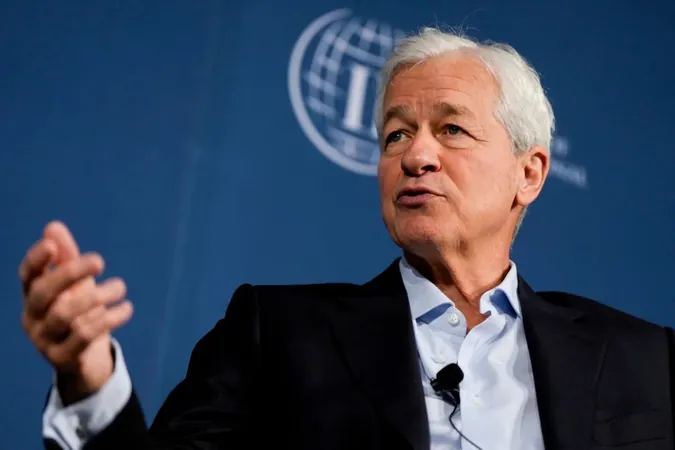
Jamie Dimon Predicts Trump Victory: A Reflection of Voter Fatigue with Washington’s Elite
2025-01-13
Author: Jia
In a candid admission, JPMorgan Chase CEO Jamie Dimon has revealed that he was not surprised by Donald Trump's victory in the recent presidential election, expressing that he had anticipated the outcome based on conversations with voters across the nation.
In an interview with CBS Sunday Morning, Dimon emphasized that the election result was a direct reaction to widespread frustration among the electorate with what he refers to as a "swamp" of ineffective government. He stated, “People were angry at the—what do they call it?—the state, the swamp… ineffective government.” The sentiment of discontent he encountered on his travels suggested that voters were yearning for more pro-growth and pro-business policies, rather than being "lectured" about social policies.
Dimon's critique is not limited to one political party; while his wife campaigned for Vice President Kamala Harris, Dimon has openly criticized both Democrats and Republicans for failing to effectively govern. A notable figure in Wall Street, he has previously identified as “barely a Democrat” but has been reticent to disclose his voting preferences in recent elections.
His comments come amidst a growing frustration among citizens who feel their concerns are being ignored by Washington elites. “I traveled around the country. I felt it wherever I went,” Dimon remarked, signifying a disconnect between the political narratives in Washington and the realities faced by everyday Americans.
He believes that the government must “demonstrate its competency,” calling for transparency in how taxpayer money is utilized. “I think every government department should report to you and say, ‘Dear taxpayer, you gave me $50 billion, I told you I was going to do X. Here’s what I did; here’s the outcomes,’” he stated. This emphasis on accountability reflects a burgeoning desire for reform and effective governance that resonates with a significant portion of the population.
Additionally, Dimon remarked on the need for citizen engagement, advocating for a hands-on approach to governance: “I just think we've lost our way...roll up your sleeves and get involved in the fight.”
As the political landscape evolves, Dimon’s insights might very well provide a glimpse into the shifting tides of American sentiment, a cautionary tale for both political parties to heed the growing call for authenticity and effective leadership. Will this serve as a wake-up call for Washington's decision-makers to reevaluate their priorities? Only time will tell.

 Brasil (PT)
Brasil (PT)
 Canada (EN)
Canada (EN)
 Chile (ES)
Chile (ES)
 Česko (CS)
Česko (CS)
 대한민국 (KO)
대한민국 (KO)
 España (ES)
España (ES)
 France (FR)
France (FR)
 Hong Kong (EN)
Hong Kong (EN)
 Italia (IT)
Italia (IT)
 日本 (JA)
日本 (JA)
 Magyarország (HU)
Magyarország (HU)
 Norge (NO)
Norge (NO)
 Polska (PL)
Polska (PL)
 Schweiz (DE)
Schweiz (DE)
 Singapore (EN)
Singapore (EN)
 Sverige (SV)
Sverige (SV)
 Suomi (FI)
Suomi (FI)
 Türkiye (TR)
Türkiye (TR)
 الإمارات العربية المتحدة (AR)
الإمارات العربية المتحدة (AR)